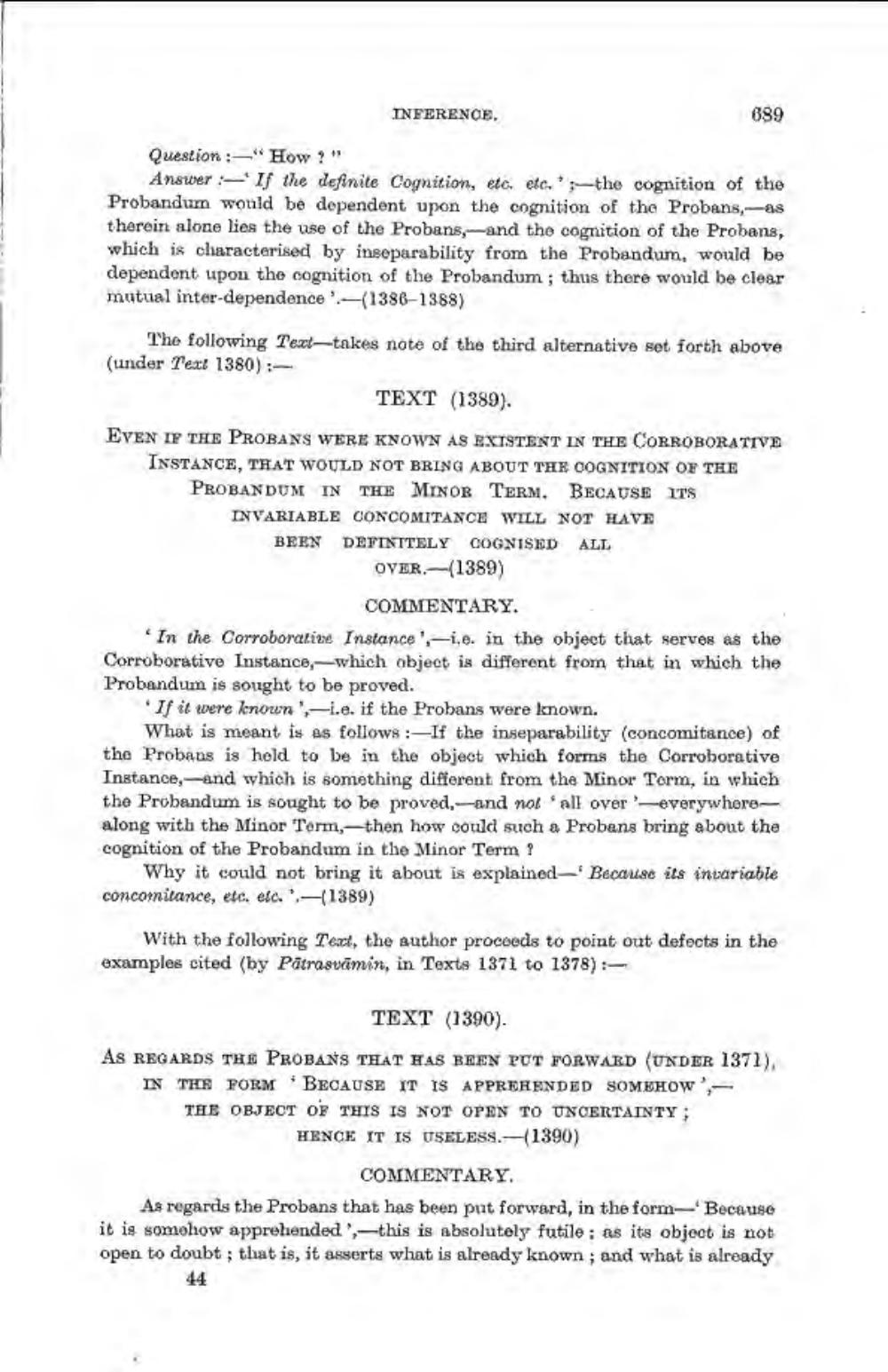________________
INFERENCE
689
Question: "How?"
Answer: If the definite Cognition, etc. etc. the cognition of the Probandum would be dependent upon the cognition of the Probans, -as therein alone lies the use of the Probans,--and the cognition of the Probans, which is characterised by inseparability from the Probandum, would be dependent upon the cognition of the Probandum ; thus there would be clear mutual inter-dependence'-(1386-1388)
The following Text-takes note of the third alternative set forth above (under Text 1380) :
TEXT (1389).
EVEN IF THE PROBANS WERE KNOWN AS EXISTENT IN THE CORROBORATIVE INSTANCE, THAT WOULD NOT BRING ABOUT THE COGNITION OF THE PROBANDUM IN THE MINOB TERM. BECAUSE IT'S INVARIABLE CONCOMITANCE WILL NOT HAVE BEEN DEFINTTELY COGNISED ALL
OVER. - (1389)
COMMENTARY. In the Corroborative Instance',-1.e. in the object that serves as the Corroborative Instance, which object is different from that in which the Probandum is sought to be proved.
If it were known',-i.e. if the Probans were known.
What is meant is as follows: If the inseparability (concomitance) of the Probans is held to be in the object which forms the Corroborative Instance, and which is something different from the Minor Torm, in which the Probandum is sought to be proved, and not all over 'everywherealong with the Minor Term, then how could such a Probans bring about the cognition of the Probandum in the Minor Term ?
Why it could not bring it about is explained – Because its invariable concomitance, etc. etc.:-(1389)
With the following Text, the author proceeds to point out defects in the examples cited (by Patrasvamin, in Texts 1371 to 1378) :
TEXT (1390). AS REGARDS THE PROBANS THAT HAS BEEN PUT FORWARD (UNDER 1371). IN THE FORM BECAUSE IT IS APPRERENDED SOMEHOW, THE OBJECT OF THIS IS NOT OPEN TO UNCERTAINTY ;
HENCE IT IS USELESS.-1390)
COMMENTARY. As regards the Probans that has been put forward, in the form Because it is somehow apprehended', - this is absolutely futile : as its object is not open to doubt; that is, it asserts what is already known; and what is already




